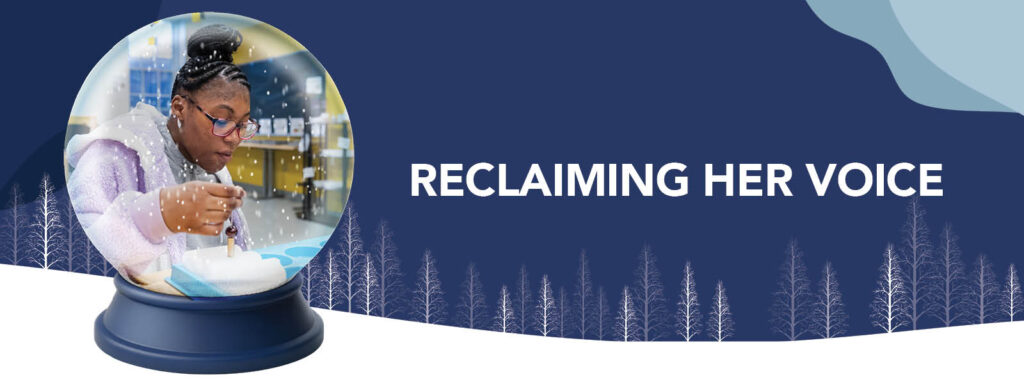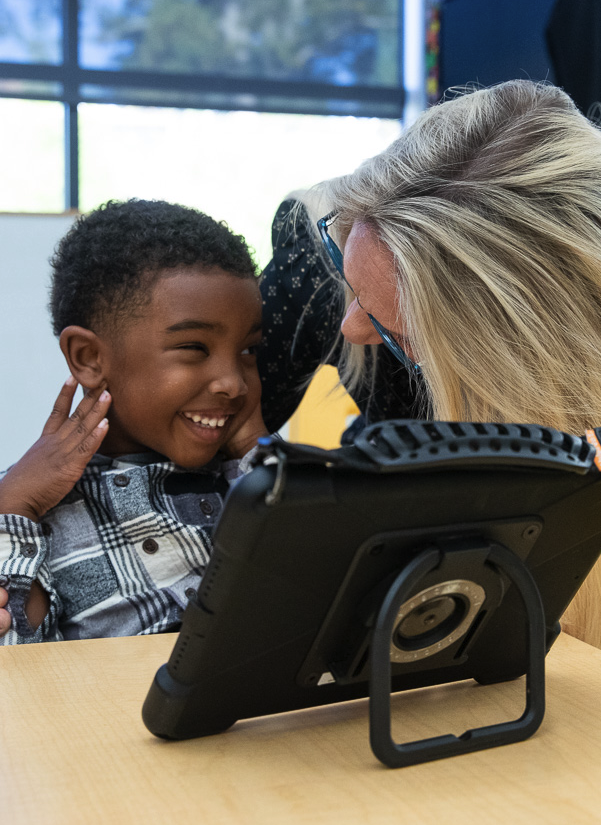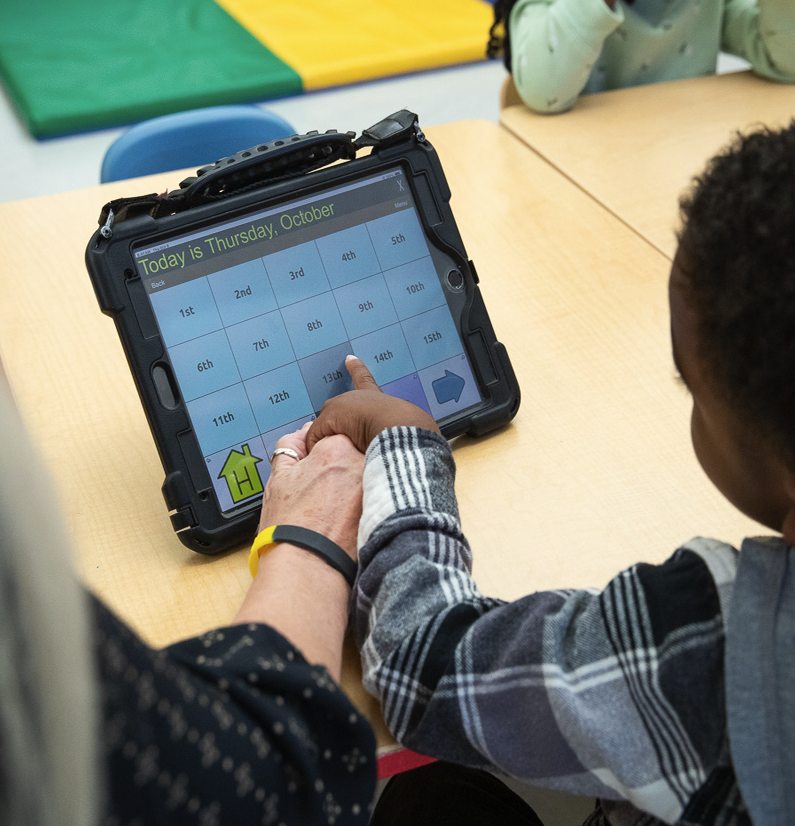The Gift of Communication: Jackson and Kindle’s Stories
At Maryland School for the Blind, communication is at the heart of everything we do. It’s more than just a skill—it’s a lifeline. For our students, who have a wide range of vision and developmental differences, communication can look very different from child to child. But every single one of them deserves to be understood.
Take Jackson, for example. Jackson is a bright, curious 4-year-old with low vision and developmental delays. When he first arrived at MSB, he had limited ways to express himself. Everything changed when he was introduced to a speech-generating device. With guidance from his teachers and therapists, Jackson began to explore language in a new way. His team carefully customized his device to match his needs and interests, helping him learn to advocate for himself.
Now, Jackson uses his device to ask for help, share what he’s thinking, and even request a well-earned break. One day, he scrolled through his options, found what he was looking for, and tapped: “I love you.” For the first time, his parents heard those words from their son. It was a moment they had dreamed about, and certainly one they’ll never forget.
Moments like this don’t happen without the right tools. Communication devices like Jackson’s can cost over $15,000. Getting insurance to cover them is often a long, difficult process. Without the right guidance, many families would face that journey alone.
At MSB, our staff help families every step of the way—whether it’s selecting the right device, navigating the complex insurance process, or teaching parents how to use the device themselves. That expertise makes communication possible for children who might otherwise go unheard.
“Since using his device, his confidence has really grown, especially in navigating or learning this world,” said Alyssa, Jackson’s mom. “And even though it looks different in his eyes, it helps us to understand the world that he sees.”

Then there’s Kindle. At 19 years old, Kindle’s journey was very different. She came to MSB after surviving a seizure that caused traumatic brain injury which left her unable to walk, speak, or see. When she arrived, she used a high-tech communication device to express herself. Over time, and with careful support from her family and speech therapist, Kindle began to explore using her voice again.
Her speech wasn’t immediately clear. It took patience, strategy, and lots of practice. But her determination was unwavering. Her therapist worked closely with her to relearn how to shape sounds and form words, using touch and verbal cues to help her understand how to position her mouth and use her voice. Today, Kindle communicates primarily through verbal speech. She’s learning new words, using self-advocacy strategies, and confidently expressing herself.
Two students. Two very different stories. One goal: communication.
Jackson and Kindle are learning to succeed in ways that are uniquely their own. Jackson thrives with technology designed to help him navigate a world he can’t fully see. Kindle is reclaiming her voice, one sound at a time, with determination and the right support.
What ties their journeys together is not the method, but the meaning. At MSB, we know that communication is deeply personal. Some students use speech. Others use devices, tactile symbols, or eye gaze technology. There’s no single path, and that’s the beauty of it. Our role is to meet each student where they are, to provide the tools that work best for them, and to make sure that every voice—spoken, signed, or communicated through an AAC—is understood.
Because when a student has the tools to communicate, they gain more than words. They gain connections. Confidence. Belonging.
And that’s a gift every child deserves.


